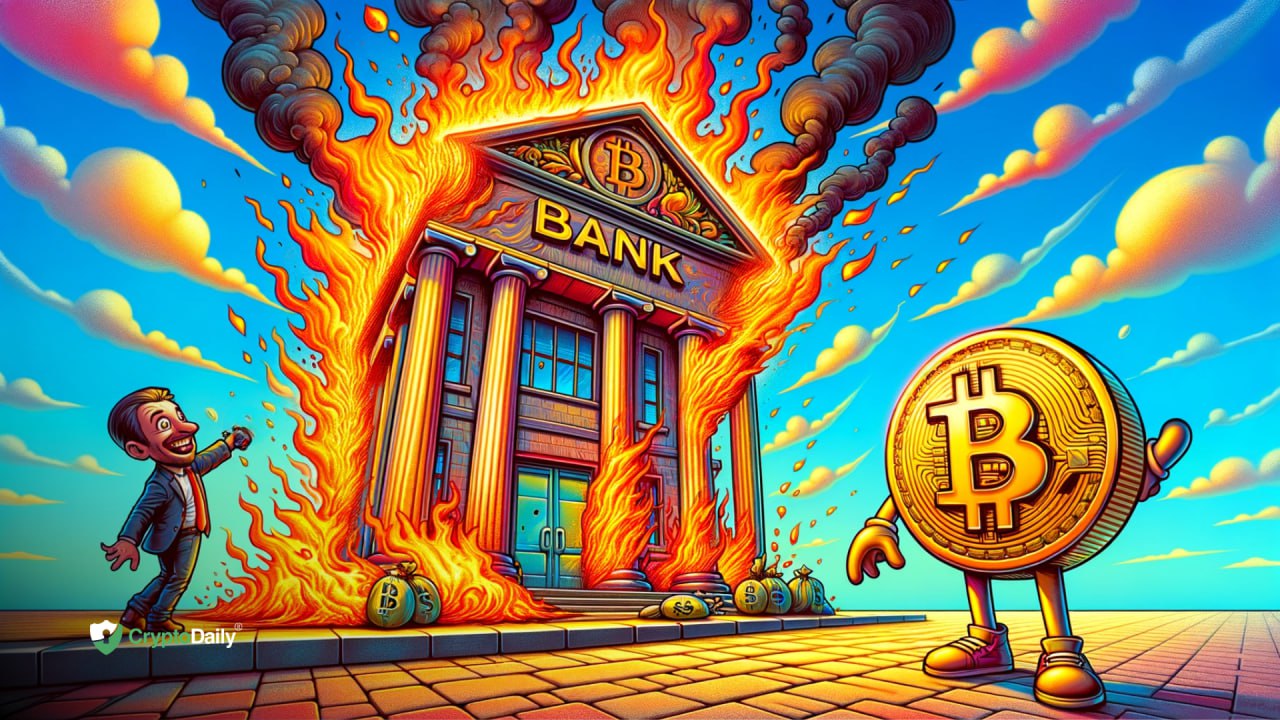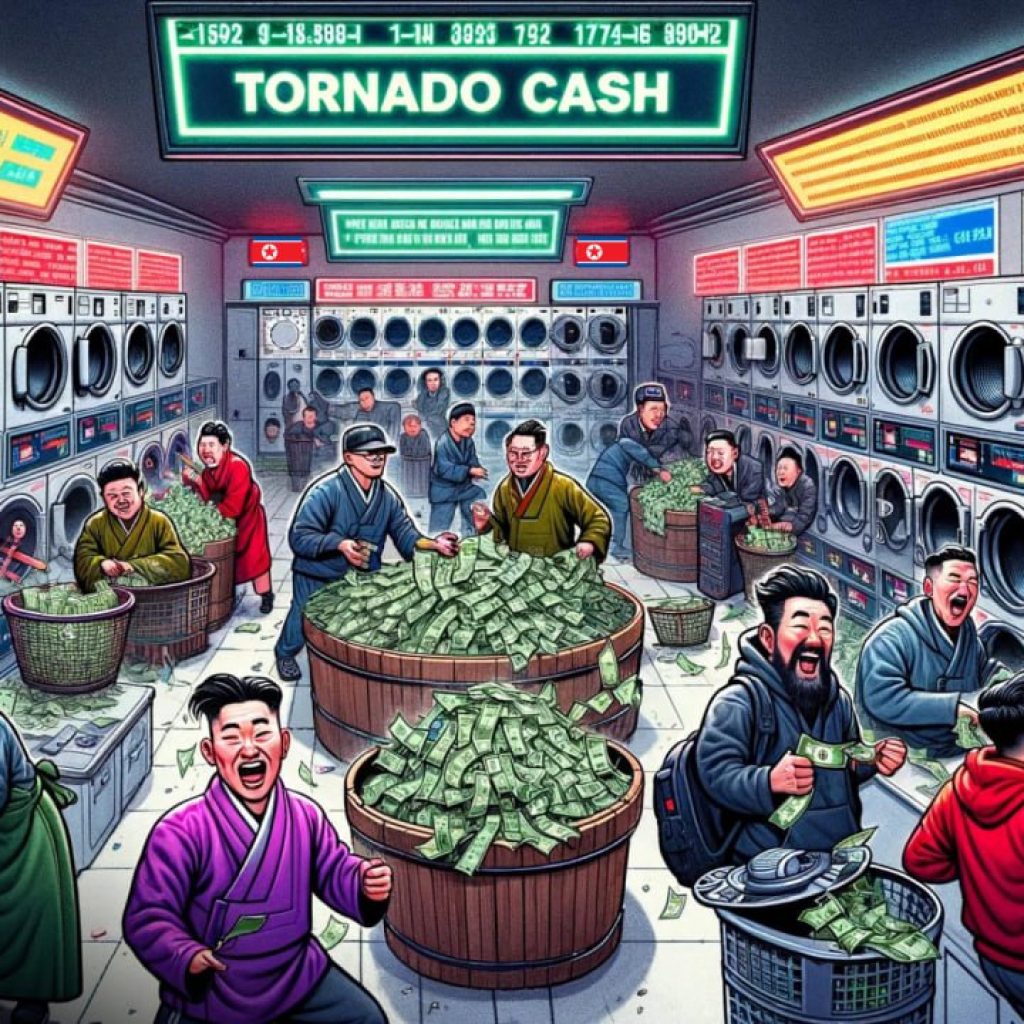The world’s governments and financial institutions have been meeting at Davos. The agenda could have included how to corral all citizens into the burning building of the failing monetary system. Why is Bitcoin so important?
Why is crypto causing such a kerfuffle?
As leaders and representatives from many of the world’s countries, and leaders from the Western financial institutions gathered at the Davos conference for the annual summit, perhaps a key point of discussion would have been what to do about bitcoin and cryptocurrencies.
Still at an extremely small and fairly inconsequential market cap compared with the hundreds of trillions of dollars of value invested into government bonds, stocks, and all the other myriad financial products that make up the fiat monetary system, it would appear to be a little surprising that crypto could engender such a kerfuffle among the leaders of countries and central banks.
How the world stands financially
That is until one really considers the financial landscape in which we find ourselves. The US is currently $34 trillion in debt, and just paying the interest on such an amount has become more than the yearly budget for its entire defence spending.
Debt across the rest of the world is also at unprecedented and unsustainable levels. Japan, the furthest country down the road for the level of debt that it has, had a debt to GDP ratio of 263% as at March 2023, with the Bank of Japan having bought 43.3% of this debt.
Most citizens across the world are probably blissfully unaware of these figures, or even if they were, would likely not understand the implications for their money, jobs, and for their very lives.
A broken system
The truth is that the system is badly broken, and is teetering at the point of collapse. Whether this happens soon or whether the can could be kicked down the road for a few more years is a moot point.
In the US many banks are on life support, only kept alive by the Federal Reserve lending them huge amounts of cash, and more or less guaranteeing that it will not let them fail, at least the global systemically important banks (G-SIBs).
The smaller banks that are allowed to fail are likely to have the toxic part of their balance sheets eaten by the Fed and then be parcelled up and given to the bigger banks such as J P Morgan for pennies on the dollar. After all, controlling just a few big banks is far easier than hundreds of smaller ones.
The imposition of CBDCs
With so many financial failures, or failures waiting to happen across the entire fiat currency-backed global system, there is only one route that central banks can possibly take that would get them out of the mess that they have themselves engineered, and that is the imposition of Central Bank Digital Currencies (CBDCs).
CBDCs are such a shocking change to the entire financial system that it is a complete wonder how their impending rollout is not properly debated or discussed. That is until one considers just how easy it is to make sure that the mainstream media keeps this particular topic off the front page, and if it is discussed, then a benign slant is put on it.
The imposition of CBDCs are exactly how central banks will lock the entirety of a country’s citizens inside the burning building.
Donald Trump recently said that he would make sure that a CBDC would not be issued in the US. However, there are ways and means for something similar to enter via the back door, by changes to FedNow, or even during a period of crisis, such as another virus outbreak, or other black swan event.
The evil of CBDCs
One of the most evil aspects of CBDCs is that they are programmable. If the government or central bank doesn’t want citizens to buy assets like gold, silver and bitcoin, they can stop these purchases through citizen’s digital wallets.
In fact, they can be programmed to carry out many other impositions, such as forcing citizens to spend a required amount of CBDCs within a certain time limit or risk losing them.
They can also be tied to a social credit score system, just as is being piloted in China. All kinds of activities that the government perceives as not behaving as an exemplary citizen, such as traffic infractions, anti-social behaviour, or perhaps the making of a donation to an opposition political party, could all be penalised through the citizen’s wallet, which could be in the form of not allowing them to access public transport or even barring entry to supermarkets.
Crypto is the people’s money
Those who label people making these observations as ‘conspiracy theorists’ should really look back through history, and note the lengths that certain interested parties will go to in order to influence governments to make changes that extend the power of intelligence agencies, and promote financial interests, at the expense of personal freedoms.
So tying back to the beginning of this opinion piece, why would governments and the leaders of the big banks and all the worlds’ financial agencies see the cryptocurrency industry as so problematic?
The answer is that it is private money. Some might argue with this definition, and the author of this opinion article is willing to accept a more exact definition.
However, that being said, crypto provides ways of transferring value from anyone, anywhere in the world, to anyone else, also in any part of the world, and much quicker and cheaper than the banks are able to do, and without any third party extracting their fees from the transactions, or without any government, or financial agency having any say in them.
Governments and banks want to control crypto
The main problem with this arrangement is, that as mentioned, governments and central banks are not in control here. Many politicians and leaders of banks might say that crypto is only used for money laundering, terrorist financing, and sex trafficking, so of course, there needs to be surveillance and permissioning over all these types of activities.
Those using crypto to make their transactions would say in return that cryptocurrencies use blockchain technology, and transactions leave a path behind them for the kinds of government agencies that have the resources to trace illicit operations.
It might also be argued that privacy and freedom to transact are inalienable human rights. Some transactions could possibly slip through the net and fund some terrorist group or other - but does this give our governments the right to completely erase the freedoms of entire populations?
Current financial system at last gasp
We are at the most important juncture in financial history. It is beyond doubt that the fiat monetary system has failed. In order to pay the interest on the current debt, more debt has to come into being, and more debt will have to be conjured into existence in order to pay the interest on that debt. It is a never ending spiral.
When new presidents or prime ministers come into office, do they do so promising to cut back on spending, and vowing to balance the books? Of course not. They wouldn’t get into power on such a promise. All are eager to see more money printing now, at the expense of their children, and their children’s children.
That said, there should be no misunderstanding here. No amount of cutbacks or austere economic measures can help to reverse the global debt pile. The money printers have taken us far beyond the point of no return.
All that can be done is to try to keep this lumbering juggernaut on the rails just a little longer. Once CBDCs are launched across the world, governments will simply move from the old system to the new, and thereby cut all the debt adrift in that old system.
Decentralisation or totalitarianism?
But surely that’s a good thing isn’t it? We would all be free of that impossible debt. If we are prepared to give up all our assets and agree to come under the yolk of totalitarianism and total surveillance, then yes, it might be a good thing.
The positive thing here is that this hasn’t happened yet. The citizenry can turn to bitcoin and cryptocurrencies. There are many imperfections in this industry, but this is because it is still so nascent. However, the potential here is simply breathtaking.
No wonder the banks hate it, and those who pull the strings of governments. Decentralisation is anathema to these people. If the network consists of millions of private computers across the entire globe, just as is the case with bitcoin, there is no way to assert control over people.
Plans are in place to destroy crypto
Very, very serious conversations will have taken place at Davos, at the highest levels of government, and beyond. Plans to disrupt, and eventually to take crypto down will have been hatched, and are probably being implemented.
It is for this reason that anyone with an interest in preserving their freedoms should take the time to educate themselves on bitcoin, and also on the traditional financial system. Be warned that this isn’t a short endeavour, as having even a basic understanding of both will really take some time.
Avoid misinformation - search for the truth
And one last thing, it is becoming increasingly difficult to have such articles published. Mainstream media toes the line and follows the government narrative, and such alternative views are very likely not to be given a platform.
It also has to be acknowledged that the author can be completely wrong and mistaken in his opinions. Leaders of global financial agencies and influential politicians often warn of the “misinformation” that abounds across social media platforms, and other sites that are not approved by government.
With this in mind, please do your due diligence by looking into bitcoin, and educating yourself on exactly how ‘money’ comes into existence, and the role that central banks and the various unelected global financial organisations play in all this. Your freedom depends on it.
Disclaimer: This article is provided for informational purposes only. It is not offered or intended to be used as legal, tax, investment, financial, or other advice.





